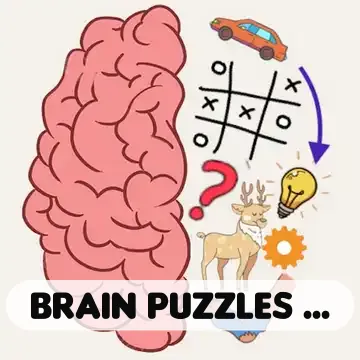Classroom Games: The Ultimate Guide to Boosting Engagement and Learning
Forget the image of silent rows and passive listening. The modern, dynamic classroom thrives on interaction, energy, and active participation. One of the most powerful tools to achieve this is the strategic use of classroom games. Far from being just a time-filler or a Friday treat, well-designed educational games are a pedagogical powerhouse. They transform learning objectives into engaging experiences, fostering a positive environment where students are motivated to participate, collaborate, and think critically.
Why Classroom Games Are a Teacher's Secret Weapon
Integrating games into your lesson plan isn't just about fun—it's about unlocking deeper learning. The benefits of using classroom games are backed by educational research and are immediately visible in student outcomes.
Key Benefits for Students
First, games dramatically increase engagement and motivation. The element of play taps into intrinsic curiosity. Second, they provide a low-stakes environment for practice and repetition, helping to solidify knowledge without the pressure of a formal test. Third, many classroom games are inherently social, building essential communication, teamwork, and problem-solving skills. Finally, they offer immediate feedback, allowing students to self-correct and understand concepts in real-time.
Top Categories of Effective Classroom Games
From quick warm-ups to full-period review sessions, there's a game for every purpose. Here are some of the most effective categories to incorporate.
1. Review and Quiz Games
These are perfect for test prep or reinforcing previous lessons. They turn memorization into a competition. Classics like Jeopardy-style quizzes, Kahoot!, or Quizlet Live are fantastic digital options. For a low-tech version, try a "Trivia Relay" where teams race to answer questions posted around the room.
2. Vocabulary and Language Builders
Building a robust vocabulary is crucial across all subjects. Games like "Pictionary" or "Charades" challenge students to convey terms without speaking. "Word Bingo" or "Scattergories" (adapted to your unit's theme) encourage quick recall and association of key terms.
3. Critical Thinking and Problem-Solving Games
These classroom games push students beyond rote learning. "Escape Room" challenges, where students solve a series of subject-related puzzles to "break out," are incredibly popular. Simple logic puzzles, "20 Questions" for a historical figure or scientific concept, or structured debates on a topic also fall into this high-impact category.
How to Choose and Implement the Right Game
Success with classroom games depends on intentionality. A random game can cause chaos, but a well-planned one creates magic. Follow this simple checklist when selecting a game:
- Align with Objectives: The game must directly support a specific learning goal.
- Consider Your Class: Factor in age, size, dynamics, and any special educational needs.
- Plan for Time: Have a clear start and end point. Use a timer to keep things on track.
- Establish Clear Rules: Explain the rules, goals, and any behavioral expectations before starting.
- Debrief Afterwards: Spend 5 minutes discussing what was learned. This connects the fun to the curriculum.
5 Simple, No-Prep Classroom Games to Try Tomorrow
You don't need fancy equipment or hours of prep. Here are five versatile games that work for almost any grade or subject.
- Think-Pair-Share: Pose a question. Students first think individually, then discuss with a partner, and finally share with the whole class. It ensures 100% participation.
- Four Corners: Label corners of the room with "Strongly Agree," "Agree," "Disagree," "Strongly Disagree." Read a statement and have students move to the corner that matches their view, then discuss.
- Whiteboard Relay: Teams line up. You show a question or problem. The first student in each line runs to a whiteboard, writes the answer, and passes the marker. Fast, active, and perfect for review.
- Silent Ball: For a focused energy release. Students stand at their desks and toss a soft ball. They must remain silent, make eye contact, and throw carefully. If they drop it or talk, they sit down.
- Chain Story: Start a story related to your topic (e.g., "The water molecule began its journey in a cloud..."). Each student adds one sentence. It builds listening skills and creative recall.
Level Up Your Teaching with Play
Classroom games are more than a diversion; they are a fundamental shift in how we approach education. They break down barriers, make learning memorable, and cultivate a classroom culture where students are active participants in their own journey. By thoughtfully integrating these playful strategies, you're not just teaching content—you're inspiring a love for learning, building essential life skills, and creating a vibrant, collaborative community. Start small, observe the joy and engagement they bring, and watch as your classroom transforms into a dynamic hub of discovery.




















































































































































































































